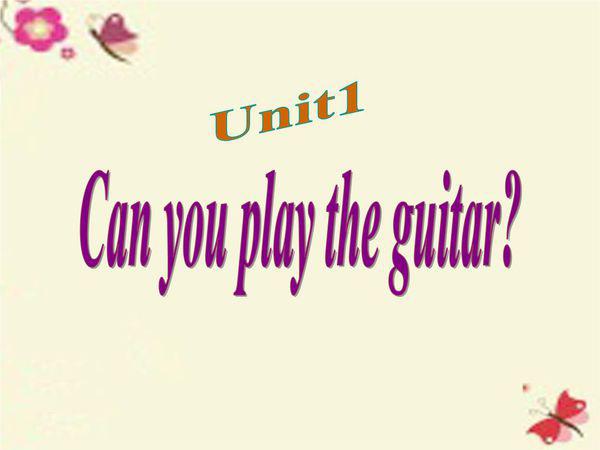[全国公共英语考试语法——不可数名词量的表示]1)物质名词a. 当物质名词转化为个体名词时。比较: Cake is a kind of food. 蛋糕是一种食物。 (不可数)These cakes are sweet. 这些蛋糕很好吃。 (可数)b. 当物质名词表...+阅读
adj. / a. 形容词 用来描述一类物质的性质,状态,外貌, 或人的性格特点,性质,品格 如:big,happy adv. / ad. 副词 用来修饰动作或形容词,一般在句子中做状语用 表示动作的进行怎样,或表示程度,特点, 如:clearly,happily prep. 介词 连接地点,时间的一类词语,可以表示方位,时间.跟一些表示时间,地点的词连用表示介词词组 如:in,to,on,under conj. 连词 用来连接时间,地点,原因,结果的一类词语 如:when,beacuse,so num. 数词 表示数字的词,既可以是基数词,也可以是序数词 如:one,two,first int. 感叹词 表示感叹的一类词,一般不加一解释,只代表感叹 如:what,how,haurray vt. 及物动词(后面要加宾语) 行为动作的词 如:do,finish,play vi. 不及物动词(后面不加宾语) 表示行为动作的词 如:appear n. 名词 表示物体,物质的词 如:pig,cow,man pron. 代词 代指一类人,事或物的词 如:he,she,hers,his,things,
英语共计多少种语法全部的多少种词
英语共计 16种语法:

时态(tense)是一种动词形式,不同的时态用以表示不同的时间与方式。所谓“时”就是行为发生的时段或状态存在的时段,即:"现在、过去、将来、过去将来"四种;所谓“态”就是行为或状态发生时所呈现的状态,有一般状态、进行状态、完成状态和完成进行状态四种。由时态结合,便形成十六种时态。
英语按词性分为10种:
名词 n. (noun):表示人或事物的名称。
动词v. (verb):表示动作或状态。
代词pron. (pronoun):代替名词、形容词或数词。
数词num. (numeral):表示数量或顺序。
副词adv. (adverb):修饰动词、形容词、其他副词或全句,表示状态特征或行为。
形容词adj. (adjective):表示名词(人或物)的特征。
介词prep. (preposition):用在名词、代词前,表示名词、代词等与其它词的关系。
冠词art. (article):用在名词前,说明名词所指的人、物。
连词conj. (conjunction):用来连接词与词、短语与短语、句与句。
感叹词int. (interjection):表示说话时的感情或口气。

扩展资料:
句子种类:
陈述句:说明一个事实或陈述说话人的看法,一般是肯定句、否定句。
疑问句:提出问题,一般疑问句、选择疑问句、反意疑问句、特殊疑问句等。
祈使句:表示请求、命令、劝告、建议等。
感叹句:表示喜怒哀乐等强烈的情感。
简单句:只有一套主、谓语的句子。
并列句:由两个及以上并列而又互相独立的简单句构成。
复合句:由一个主句和至少一个从句构成。
参考资料:搜狗百科-英语语法
英语中的八种语法各是什么构成是什么表示什么
一、八种时态:是不是八种时态呀,没有八种语法这么一说的: 1.一般现在时: 主语+do/does(现在分词) e.g We clean the room every day. 2.一般过去时: 主语+did e.g We cleaned the room just now. 3.现在进行时: 主语+am/is/are doing e.g We are cleaning the room now. 4.过去进行时: was/were doing e.g We were cheaning the room at 5:00 yesterday afternoon. e.g 5.现在完成时: have/has done We have cleaned the room already. 6.过去完成时: had done e.g We had cleaned the room before he arrived. 7.一般将来时: will do/ e.g We will clean the room tomorrow. 8.过去将来时: was/were to /would do e.g He said he would clean the room next.
二、八种时态所用的时间状语: 一般现在时 every …, sometimes, at …, on Sunday, 一般过去时 yesterday, last week, an hour ago, the other day, in 1982, just now 一般将来时 next…, tomorrow, in+时间, 现在完成时 for, since, so far, ever, never, just, yet, till/until, up to now, in past years, always, recently 过去完成时 before, by, until, when, after, once, as soon as 过去进行时 this morning, the whole morning, all day, yesterday, from nine to ten last evening… when, while 将来进行时 soon, tomorrow, this evening, on Sunday, by this time, tomorrow, in two days, tomorrow evening
三、时态一致的两种情况: 1) 如果从句所叙述的为真理或不变的事实,则永远用现在时。
At that time, people did not know that the earth moves. He told me last week that he is eighteen. 2) 宾语从句中的助动词ought, need, must, dare 时态是不变的。 He thought that I need not tell you the truth. 参考资料:龙文在线英语:.leonen.com
英语里面各个语法名称的英文要详细和正规
Traditional grammar classifies words based on eight parts of speech: the verb, the noun, the pronoun, the adjective, the adverb, the preposition, the conjunction, and the interjection.
Books are made of ink, paper, and glue.
In this sentence, "books" is a noun, the subject of the sentence.
Deborah waits patiently while Bridget books the tickets.
Here "books" is a verb, and its subject is "Bridget."
We walk down the street.
In this sentence, "walk" is a verb, and its subject is the pronoun "we."
The mail carrier stood on the walk.
In this example, "walk" is a noun, which is part of a prepositional phrase describing where the mail carrier stood.
The town decided to build a new jail.
Here "jail" is a noun, which is the object of the infinitive phrase "to build."
The sheriff told us that if we did not leave town immediately he would jail us.
Here "jail" is part of the compound verb "would jail."
They heard high pitched cries in the middle of the night.
In this sentence, "cries" is a noun acting as the direct object of the verb "heard."
The baby cries all night long and all day long.
But here "cries" is a verb that describes the actions of the subject of the sentence, the baby.
The next few sections explain each of the parts of speech in detail. When you have finished, you might want to test yourself by trying the exercise.
以下为关联文档:
n开头的英语单词是形容词n开头的英语单词(形容词):new (新的)、naive(天真的) 、nice (漂亮)、 nimble(机智的)、noble(讽刺的)。 详细解释: 1、new英 [njuː]美 [nu] adj. 新的,新鲜的;更新的;初见的 例句:New Englan...
英语语法应用:形容词搭配不定式该怎么用分别介绍三种“形容词+不定式”的意义和用法。 一、主句主语是不定式的逻辑主语 用于该种搭配的一般是动态形容词。主要有四类: 1.表示喜怒哀乐的形容词+不定式: I am sorry t...
英语除了有名词介词形容词副词以外还有什么词英语一共有10大词类:名词,形容词,数词,代词,动词,副词,冠词,介词,连词,感叹词。其中前六个属于实词,接下来三个是虚词。感叹词一般不构成句子成分,单独为一类。 除了上面的10类,还有表示...
医学名词英文缩写病例 Clinical History 诊断 Diagnosis 治疗 Treatment 预防 Prevention 呼吸 Respiration 便通 Bowel Movement 便 Stool 血液 Blood 脉搏 Pulse, Pulsation 尿 Urine 脉搏...
英语口语常用形容词名词是对话中的比如team。。。形容词褒义的比如:kind nice excellent wonderful amazing weird(奇怪的) cool righteous(酷毙了) pretty(漂亮的) gorgeous terrific fantastic incredible great honest colorful...
英语中的名词副词形容词等名词 英语中,名词一般描绘人物、地点、事物与抽象观点等。英语的名词总体上来说没有格变化,但有限定和数量差别。如: the(定冠词):the house指一幢明确具体的房子(例:“the house I...
英语:名词动词形容词的定义及用法复杂、冗长的解释不一定能帮助你学英文。 名词:最简单的理解就是“标签”,如人的名字、地名、东西的名称等。名词可以做句子的主语、宾语、表语; 动词:表示动作的词,如“起来”、...
英语中复合词名词名词形容词名词名词+名词:bookshop /store /seller / mark,sunlight /shine /glasses,French /Englishman,policeman /woman,volley /basket /base / football,penfriend,grandfather /moth...
有什么网络名词或英文名词比如FUCK有什么网络名词或英文名词比如FUCK,英文的网络用语有哪些举些最常用的例子:"F-U-C-K"用"Fu3K"代替 the Fu3K 常用来加强语气,类似于“到底”、“究竟” 例1 熟人间的问候: "How the F...



